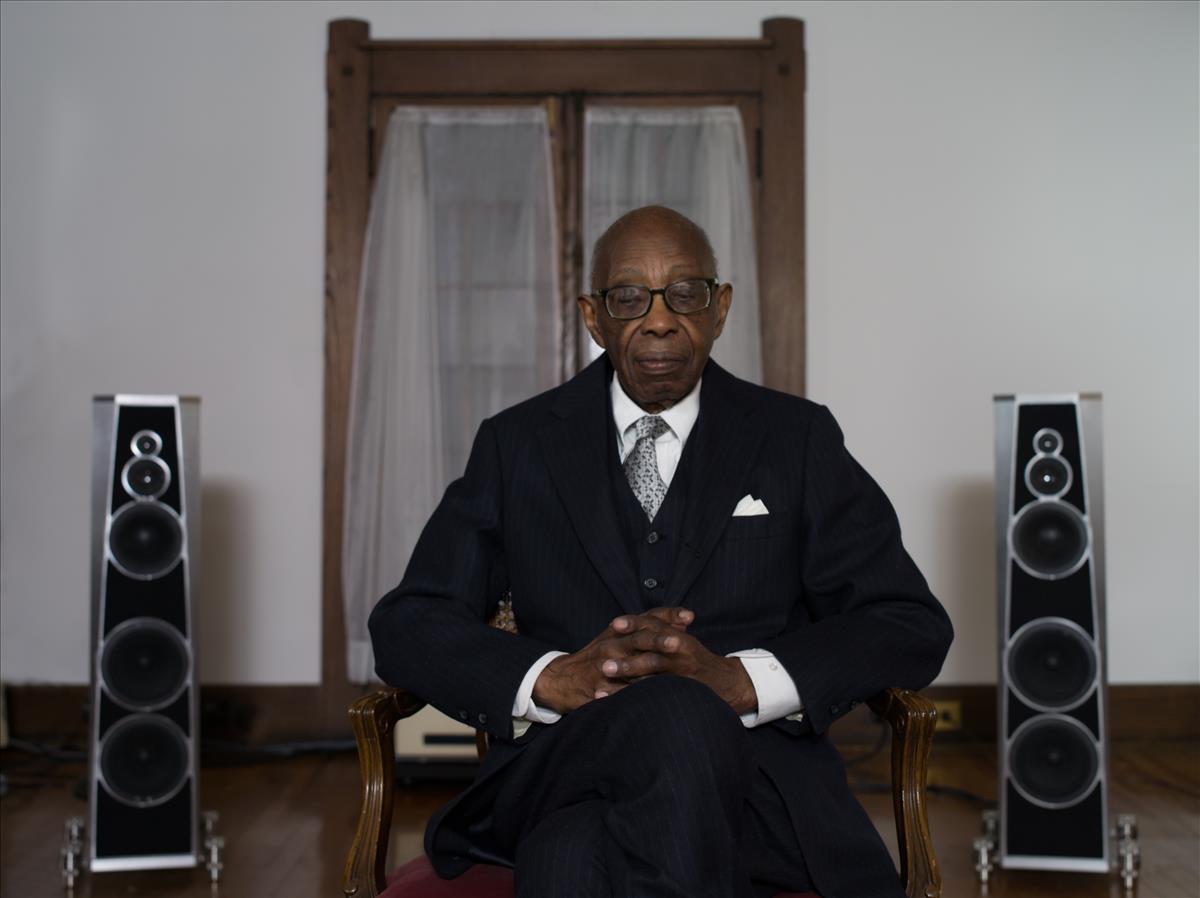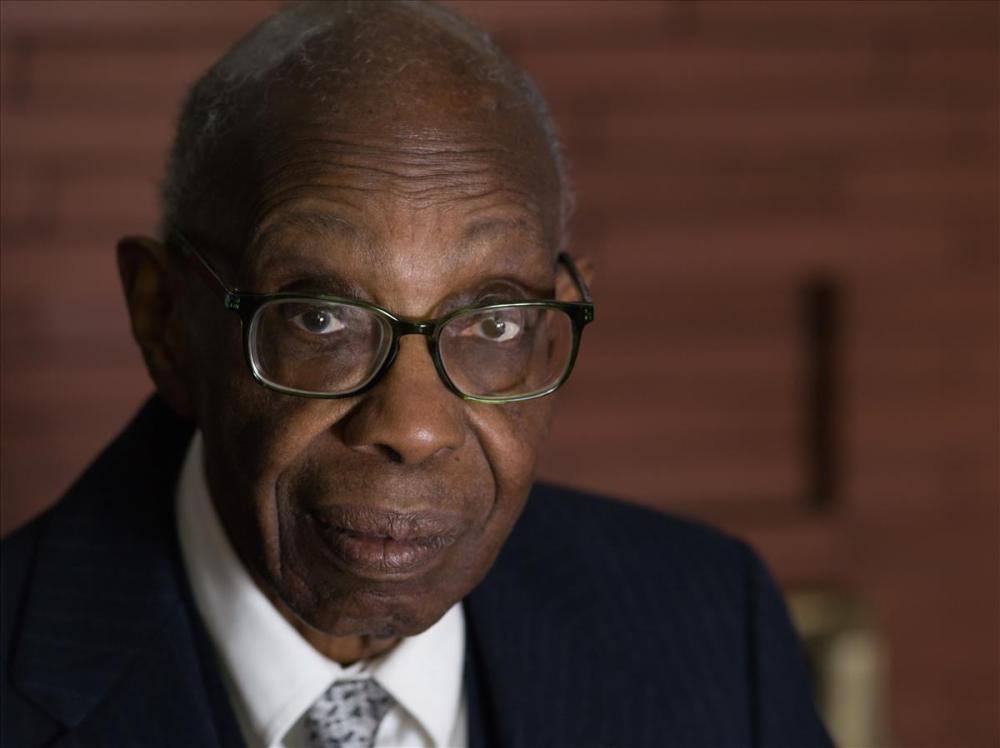George Theophilus Walker
George T. Walker
Biography
1922-2018

"There is a stamp of authority, individuality, and personality that makes his music compelling listening."
(Stereophile, November 1997)

Piano variation #1
George Theophilus Walker was one of America's most honored composers, and was the first African-American composer to win a Pulitzer Prize for music. His works have been performed by every major orchestra in the country. He composed nearly 100 pieces in forms ranging from solo piano pieces and songs to concerti and symphonies and was the recipient of seven honorary doctorates.
George Theophilus Walker was born in Washington, D.C. on June 27, 1922. His father was a physician who had emigrated from the West Indies. Walker's sister, Frances Walker-Slocum, was also a distinguished educator, pianist, and organist. His wife, Helen Walker-Hill, was a pianist and musicologist specializing in music composed by African American women. Their son, Gregory T.S. Walker, is a violinist and composer, and their son Ian Walker is a playwright and filmmaker.
Walker began piano lessons with his mother at the age of five. He graduated high school and was admitted to the Oberlin Conservatory at fourteen, and later to the Curtis Institute of Music. At the Curtis Institute of Music in Philadelphia he studied piano with Rudolf Serkin and composition with Samuel Barber. A year after graduation he wrote his first string quartet, the second movement of which he revised into Lyric for Strings— one of the most-performed pieces by a contemporary American composer. He toured Europe as a concert pianist in 1954, and continued his studies at the Eastman School of Music the following year, becoming the first African American to receive a doctorate from that institution in 1956. In 1957 he returned to Europe and spent two years furthering his compositional studies with famed teacher Nadia Boulanger. He toured as a performer in Europe again in 1959.
In the early 1960s, health problems related to the stress of touring brought a temporary end to his piano career. Walker shifted his focus to composition and teaching. He held positions at such institutions as the Dalcroze School of Music, Smith College, the University of Colorado, Peabody Institute of Johns Hopkins University, and the University of Delaware. He chaired the music department at Rutgers University from 1969 until his retirement in 1992, as Professor Emeritus.
His musical influences as a composer came from a breath-taking range of classical and modern influences, from works of Debussy, Beethoven, and Stravinsky, to African-American spirituals, blues, and jazz. Without a doubt, Walker has his own distinct musical voice. His music is marked by intellectual dynamism rather than an overt display of emotionalism. While his music does not address social issues directly, there are frequent references to racial history, homelessness, as well as classical mythology. As an accomplished pianist, Walker's piano music shows an in-depth knowledge of keyboard technique, but never resorts virtuosity as a showcase. His music can challenge the audience, but pays with repeated listenings.
He continued to compose until the last months of life. During his seven decades as a composer, he received commissions from such major orchestras as the New York Philharmonic, and performances by orchestras throughout the world. His many awards included two Guggenheim Fellowships, Aaron Copland ASCAP Award, two Koussevitsky Awards, an American Academy of Arts and Letters Award, and two Rockefeller Foundation Fellowships. He received seven honorary doctorates. In a compositional career highlighted by many honors, in 1996 Walker became the first African American composer to win a Pulitzer Prize for music, for his Lilacs for Voice and Orchestra. Based on a text by Walt Whitman in memory of the death of Abraham Lincoln, Lilacs was commissioned by the Boston Symphony Orchestra. Washington, D.C. Mayor Marion Barry declared Walker's 75th birthday—June 17, 1997—"George Walker Day", and he was inducted into the American Classical Music Hall of Fame in 2000. His autobiography, Reminiscences of an American Composer and Pianist, was published in 2009. His last orchestral work, the fifth of his 'Sinfonias', was Visions, in memory of the victims of the Emanuel African Methodist Episcopal Church shooting in 2015. Walker died in 2018 at the age of 96.
Licensing Contact
Keiser Productions Inc.
10750 Indian Head Industrial Boulevard
St. Louis, MO 63132, USA
203-560-9436 (phone)
